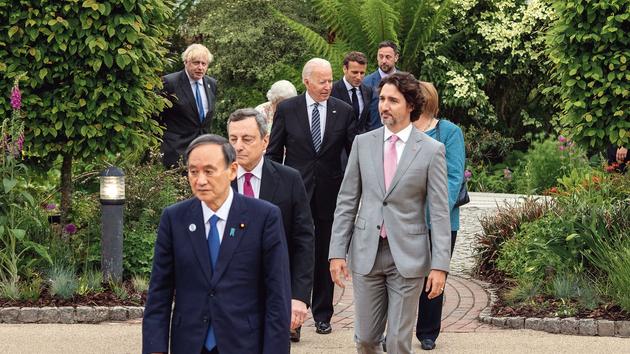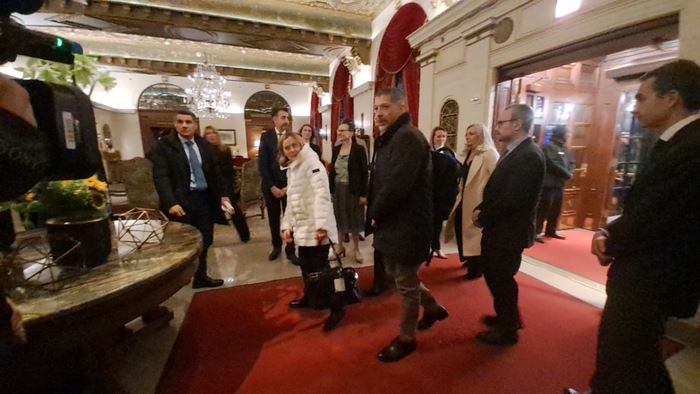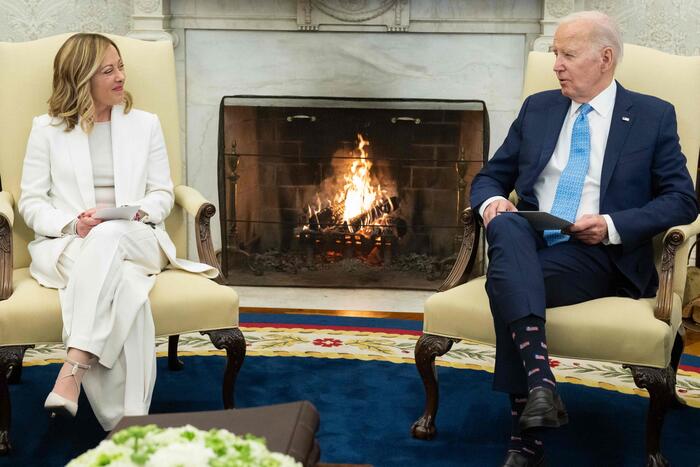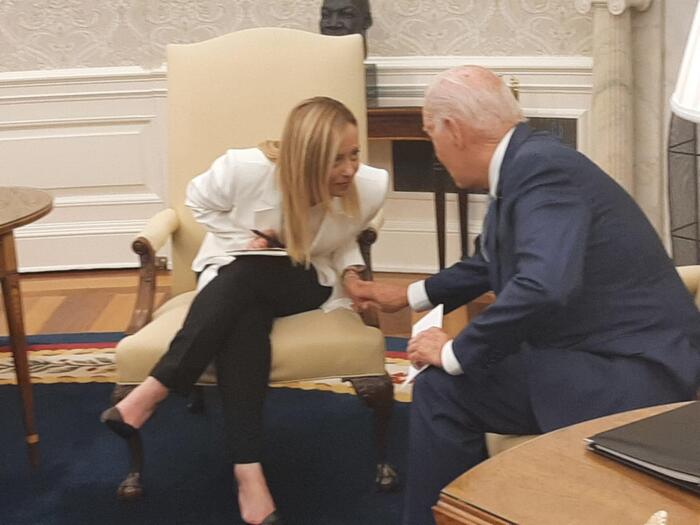Special Envoy to Carbis Bay (United Kingdom)
A night barbecue on the beach,
grilled
marshmallows
and rum cocktails: the heads of state and government of the G7 have tightened their ties like a bunch of friends, even if some made their entry into the cenacle.
The leaders of the seven largest Western powers (United States, Canada, Japan, Germany, United Kingdom, France, Italy) wanted to show their cohesion in the face of the challenges of the planet, for their first physical meeting in two years, which s 'ended this Sunday after three days in Carbis Bay, in Cornwall (south-west of England).
"America is back",
repeated over and over again Joe Biden, delighted at the end of an
"extraordinary"
summit
. His entry onto the international scene was greeted as a
“breath of fresh air”
by his partners, as Boris Johnson summed up - who had nevertheless not spared his advances towards Donald Trump. Emmanuel Macron congratulated himself before him
"on having an American president who is part of the club and very keen to cooperate". "We are on the same line,"
replied the latter. The French president has deployed all his charms to create a close relationship with him, affectionately surrounding him with his arm during a conversation on the beach at Carbis Bay. He had brought her a bottle of rib roast.
"The election of Joe Biden does not mean that the world has no more problems but we can work on these problems with a new impetus"
, relativized Angela Merkel, of which it was the last G7.
"Strengthen ties"
This meeting was the occasion for a
"realignment of the Western alliance to strengthen ties and project its influence in the world, in the face of hostile states",
analyzes Denisse Rudich, director of the G7 research group for The Global Governance Project.
A question of
"credibility"
for the model of liberal democracies, which is
"at risk",
according to Macron.
The incessant bickering between members of the European Union - who have done everything to establish the solidity of their positions - with their former British partner, however, cast a shadow over this fine ambition.
Read also:
G7 leaders want to turn the page on the pandemic
Canadian Justin Trudeau echoed Joe Biden's call to strengthen unity against China.
The final statement speaks of a determination by G7 members to eradicate forced labor in Xinjiang from their supply chains.
It demands respect for Hong Kong's autonomy and affirms its vigilance on stability in the China Sea with Taiwan.
The text also calls for a new investigation into the origin of the Covid-19 virus
"including in China".
The G7 intends to make 2021 a "turning point" for the planet
Certainly more nuanced, Joe Biden did not break with the line of his predecessor aimed at making China the main adversary of the United States. He gauged the solidarity of his allies on this front.
"The G7 is not a club hostile to China," said
the President of the Republic. We must be
“frank about what we cannot accept”
from her, said Italian Mario Draghi.
"The time when global decisions were dictated by a small group of countries are long gone,"
mocked the Chinese embassy in London. Moreover, three days before Joe Biden's meeting with Vladimir Poutine in Geneva, the G7 calls on Moscow to
"cease its destabilizing activities", in
particular its cyber attacks.
Read also:
At the G7, the "soft diplomacy" of the royal family
Ahead of the COP26 scheduled for Glasgow in November, summit host Boris Johnson wanted to put climate at the heart of the agenda.
The G7 intends to make 2021 a
“turning point”
for the planet.
It will
"strive to limit"
global warming to 1.5 degrees, promises to halve its emissions by 2030 and finally meet its goal of investing $ 100 billion in public and private money per year. to help the poorest countries in their climate transition.
NGOs remain very skeptical about the timing and real scope of these announcements.
The richest countries in the world confirm their promise to deliver 1 billion doses of vaccines to the poorest within a year, to
"end the pandemic".
A
"welcome" step forward,
according to Tedros Adhanom Ghebreyesus, director of the World Health Organization, but
"we need more".
Vaccinating 70% of the population would require 11 billion doses. Emmanuel Macron, who announces the doubling of the doses given by France to 60 million by the end of the year, believes it is possible to reach 60% of the vaccinated population next year, in particular thanks to the lifting of restrictions exports of components to expand production, without providing details on the controversial issue of patent suspension.














